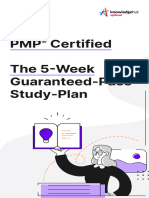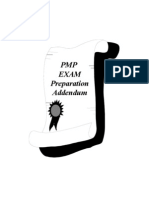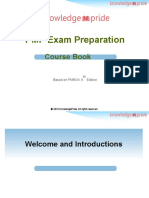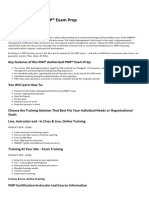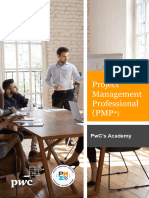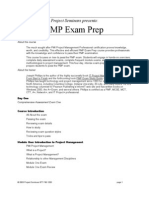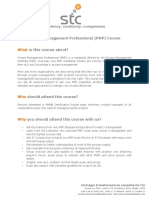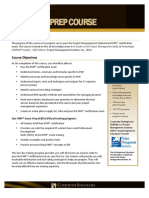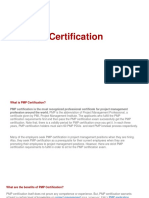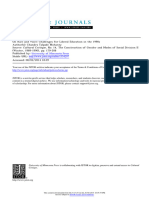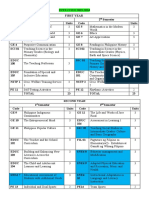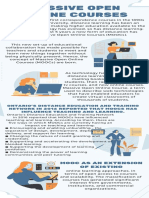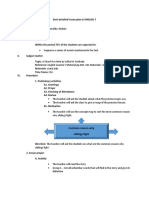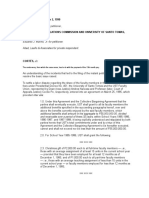0% found this document useful (0 votes)
25 views17 pagesPMP Guide
The document outlines a comprehensive 5-week study plan for obtaining PMP certification, detailing course content, exam structure, and strategies for success. It emphasizes the importance of understanding project management principles, effective study habits, and the need to address common challenges faced by project managers. Additionally, it provides tips for exam preparation, including time management and practice with mock tests.
Uploaded by
salesagniwingsCopyright
© © All Rights Reserved
We take content rights seriously. If you suspect this is your content, claim it here.
Available Formats
Download as PDF, TXT or read online on Scribd
0% found this document useful (0 votes)
25 views17 pagesPMP Guide
The document outlines a comprehensive 5-week study plan for obtaining PMP certification, detailing course content, exam structure, and strategies for success. It emphasizes the importance of understanding project management principles, effective study habits, and the need to address common challenges faced by project managers. Additionally, it provides tips for exam preparation, including time management and practice with mock tests.
Uploaded by
salesagniwingsCopyright
© © All Rights Reserved
We take content rights seriously. If you suspect this is your content, claim it here.
Available Formats
Download as PDF, TXT or read online on Scribd
/ 17
